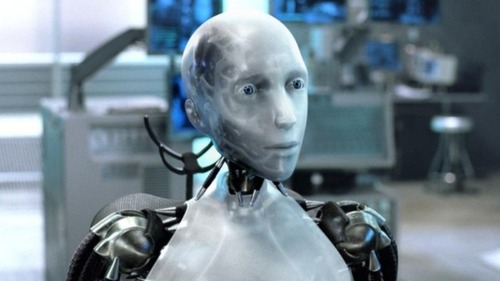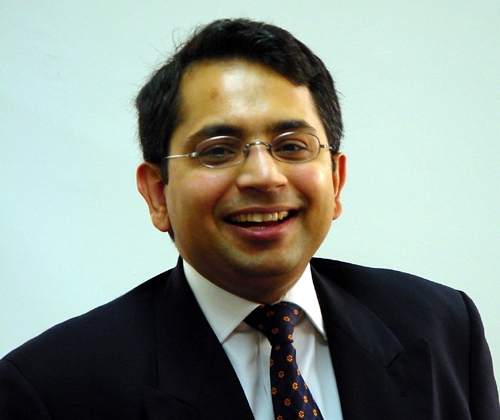Quantum Artificial Intelligence and 'Humanoid' Robots
London, UK - 13th October 2014, 09:35 GMT
Why do we spend so much time looking at our smart phone? The smart phone we carry -- Android or iPhone -- is an impressive machine, with computing speeds and storage capacities thousands of times those of desktop Personal Computers (PCs) and laptops from only a few years ago. The 'apps' we use every day are enhancing our capacity to function in the complex and truly globalised world we now encounter at work, home and play. Imagine living without that smart phone which provides an additional silicon brain? As Moore's Law climaxes, our smart watch is likely to outshine our present smart phone the way our smart phones now eclipse old PCs and laptops. Yet, there is something missing...
 Quantum Artificial Intelligence and ‘Humanoid’ Robots
Quantum Artificial Intelligence and ‘Humanoid’ Robots
Intelligent Computing
No matter how powerful the smart phone and smart watch become, they may never develop greater artificial intelligence capability if we continue to rely on conventional computing technology. According to the authors of a paper published in the journal Physical Review X in the summer this year, adding a dash of quantum mechanics could enhance the efficiency of learning algorithms in a similar way as other applications of quantum computing.
Quantum AI
This ground-breaking work comes under a new discipline, the so-called 'Quantum AI', an area in which the search engine company Google has started to invest hundreds of millions of dollars via the creation of a specialised laboratory in collaboration with NASA, more famous for launching rockets, satellites and landing man on the moon. Google alongside IBM, NEC, STMicroelectronics, amongst many other multi-nationals and government agencies, is also developing more quantum computing and quantum technologies 2.0 solutions.
Quicker, Faster and More Secure
Quantum mechanics has revolutionised the world of communications and computers by introducing new algorithms which are much quicker and more secure in transferring information. Quantum computing not only allows for the creation of powerful computers, but also may assist in evolving smarter and more creative robots than conventional ones. Scientists have now confirmed that quantum tools that enhance the performance of learning algorithms may eventually help robots learn and respond much faster to the stimuli around them.
Robots, Automatons and Agents
Researchers from the Complutense University of Madrid (UCM) and the University of Innsbruck (Austria) published a study in the journal 'Physical Review X' which states that these tools can be used to apply to robots, automatons and the other agents that use artificial intelligence (AI). They demonstrate for the first time that quantum machines can respond the best and act the fastest against the environment surrounding them. More specifically, they adapt to situations where the conventional ones, which are much slower, cannot finish the learning and response processes.
Real Life: Complex and Unpredictable
Real life situations are complex and unpredictable. While robots today have become more adapted, they’re still essentially stupid –- limited to a particular pre-programmed series of tasks, slow to respond to complex environments and unable to learn from past experience. Put a conventional robot out of the living room or production line and it will stumble, crumble and fall.
Impatient Environments
"In the case of very demanding and 'impatient' environments, the outcome is that the quantum robot can adapt itself and survive, while the classic robot is destined to collapse," explain G Davide Paparo and Miguel A. Martín-Delgado, the two researchers from UCM who have participated in the study. The researchers have used the theory of a quantum random walk to show how an agent can explore its episodic memory in superposition to dramatically speed up its active learning time. Utilising quantum physics to promote artificial intelligence learning has the ability to provide a quadratic increase in speed in active learning -- critical when the environment changes on time scales of the “thinking” time of the autonomous learning agent.
Machine Learning: Scenarios, Modelling and Predictions
Recent research work has focused on using quantum computing to accelerate ahead with one of the most difficult points to resolve in information technology: machine learning, which is used to create highly accurate models and predictions. It is applied, for example, to know how climate chaos caused by global warming or a pandemic such as Ebola will evolve or in the development of Internet search engines.
Qualitative Advantages of Quantum
"Building a model is actually a creative act, but conventional computers are no good at it," says Martín-Delgado. "That is where quantum computing comes into play. The advances it brings are not only quantitative in terms of greater speed, but also qualitative: adapting better to environments where the classic agent does not survive. This means that quantum robots are more creative."
Intelligent and Creative Quantum Robots
The authors assess the scope of their study as such: "It means a step forward towards the most ambitious objective of artificial intelligence: the creation of a robot that is intelligent and creative, and that is not designed for specific tasks!" Could the Combination of artificial intelligence systems with quantum circuitry be the recipe we need to build the Arthur C Clarke's HAL 9000s in the Space Odyssey series and Isaac Asimov’s R Daneel Olivaws of the future? Quantum learning agent applications may yet take time to evolve and perfect, but the journey has begun.
Shrinking Time Horizons
Let us not forget that when the world wide web was invented in the early 1990s, many time scales for products and applications which were mapped out for the next two decades manifest in the first few years, giving rise to the concept of one web year being equal to sixty human days and one man year being equal to six web years. Does a similar quantum year await the QT2 evolution horizon so we could actually experience quantum technology 2.0 products and applications much sooner than the anticipated ten to fifteen year horizon beginning with quantum clocks and sensors and much more besides?
[STOPS]
What are your thoughts, observations and views? We are keen to listen and to learn.
Best wishes

D K Matai
ATCA: The Asymmetric Threats
Contingency Alliance is a philanthropic expert initiative founded
in 2001 to resolve complex global challenges through collective
Socratic dialogue and joint executive action to build a wisdom
based global economy. Adhering to the doctrine of non-violence,
ATCA addresses asymmetric threats and social opportunities arising
from climate chaos and the environment; radical poverty and microfinance;
geo-politics and energy; organised crime & extremism; advanced
technologies -- bio, info, nano, robo & AI; demographic skews
and resource shortages; pandemics; financial systems and systemic
risk; as well as transhumanism and ethics. Present membership
of ATCA is by invitation only and has over 5,000 distinguished
members from over 120 countries: including 1,000 Parliamentarians;
1,500 Chairmen and CEOs of corporations; 1,000 Heads of NGOs;
750 Directors at Academic Centres of Excellence; 500 Inventors
and Original thinkers; as well as 250 Editors-in-Chief of major
media.
The Philanthropia, founded in 2005, brings together over
1,000 leading individual and private philanthropists, family offices,
foundations, private banks, non-governmental organisations and
specialist advisors to address complex global challenges such
as countering climate chaos, reducing radical poverty and developing
global leadership for the younger generation through the appliance
of science and technology, leveraging acumen and finance, as well
as encouraging collaboration with a strong commitment to ethics.
Philanthropia emphasises multi-faith spiritual values: introspection,
healthy living and ecology. Philanthropia Targets: Countering
climate chaos and carbon neutrality; Eliminating radical poverty
-- through micro-credit schemes, empowerment of women and more
responsible capitalism; Leadership for the Younger Generation;
and Corporate and social responsibility.

